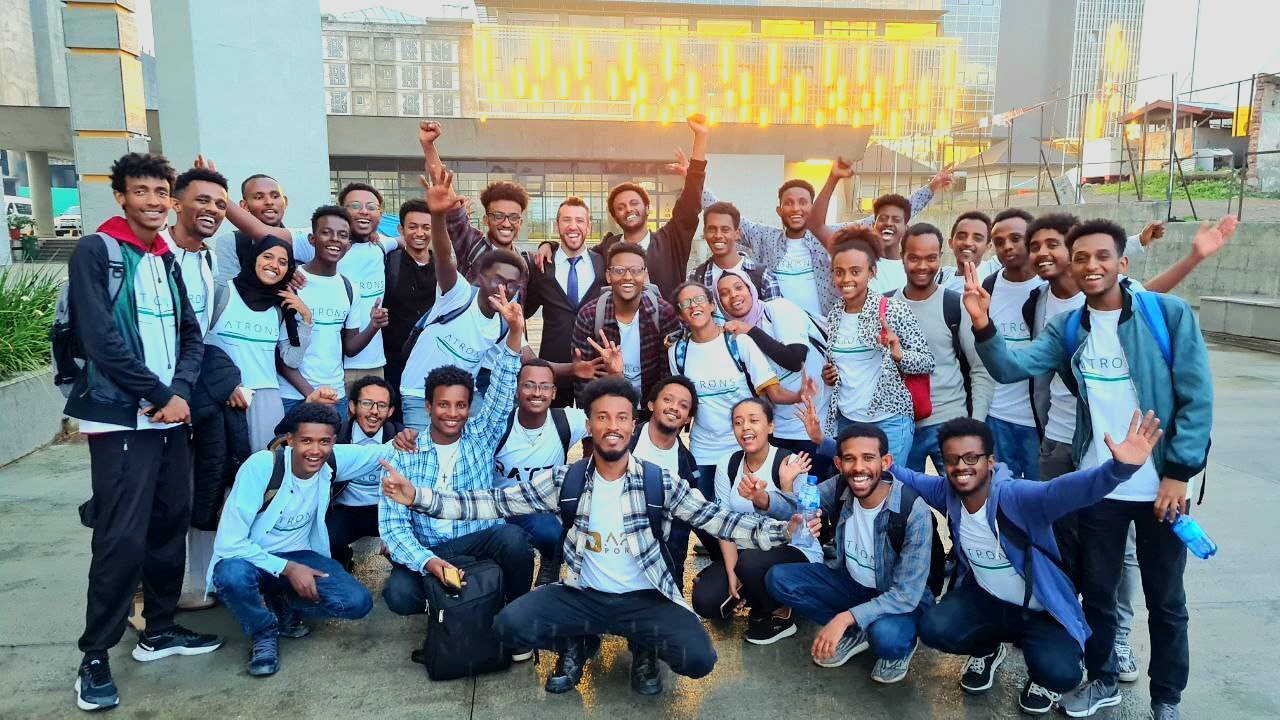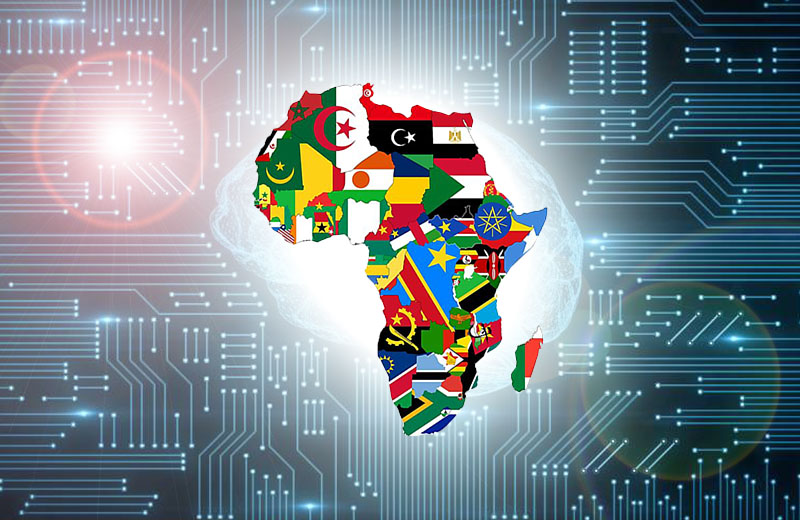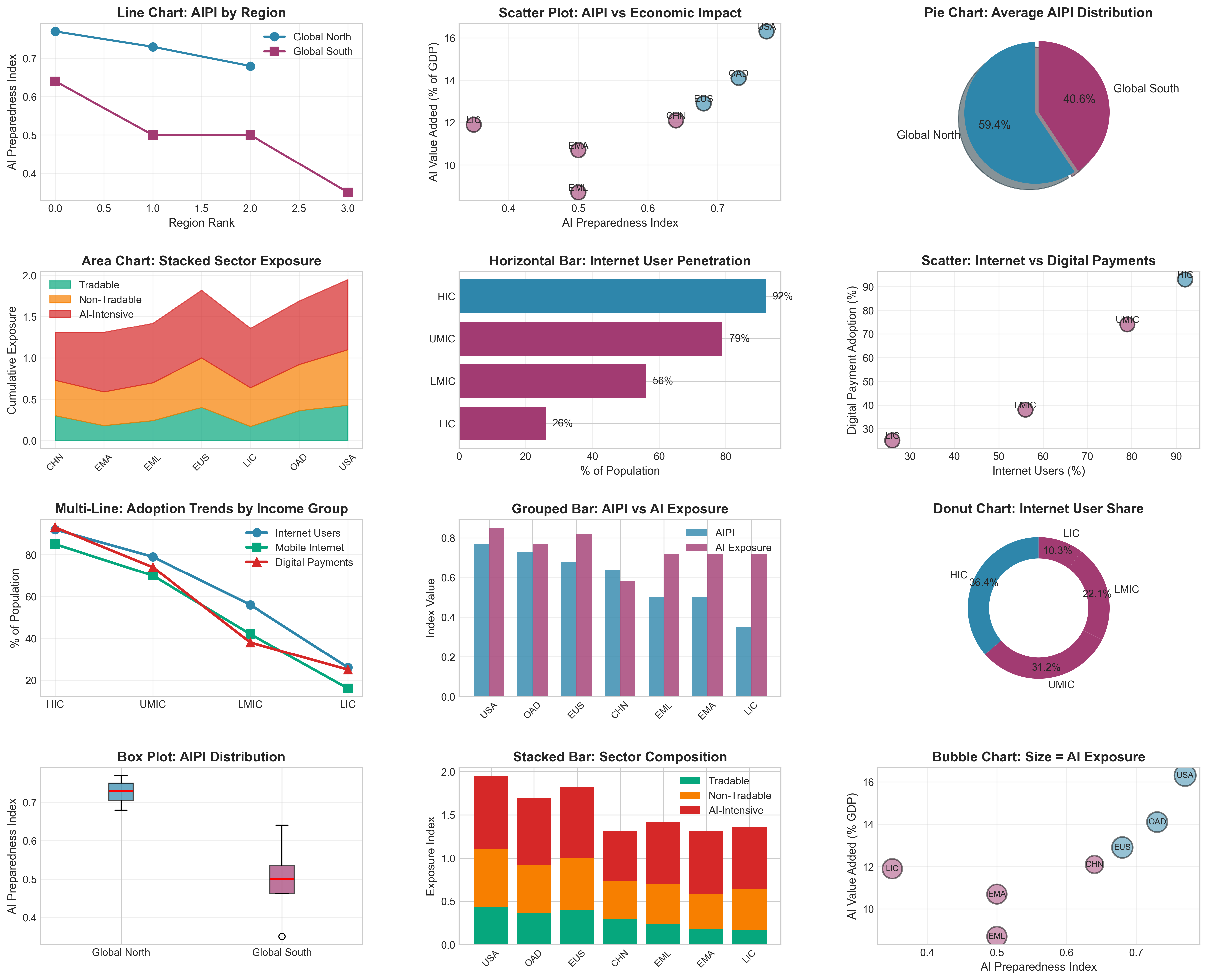A2SV IS CHANGING WHAT AFRICAN DEVELOPERS THINK IS POSSIBLE

Africa is home to 1.55 billion people - roughly 20% of the global population. More critically, it’s home to the youngest population on Earth. The United Nations projects that by 2050, Africa’s population will surge to 2.5 billion people. That is a billion more young people entering schools, seeking jobs, and needing opportunities.
The question isn’t whether they’ll have potential. The question is whether they’ll have pathways.
For Beimnet Zewdu, a software engineering student from Ethiopia with modest dreams of freelancing online, that pathway came from an unexpected source. Today, he works at Uber, one of over 100 young Africans who have landed jobs at Google, Amazon, LinkedIn, and other tech giants through an NGO called A2SV (Africa to Silicon Valley).
Few organisations are driving as much change as A2SV is on the continent when it comes to training the youth in the skills that matter the most today and into the future: technological skills.
I met up with A2SV CEO, Emre Varol, to discuss what A2SV is doing, how we can contribute as individuals, how African countries can support, and most importantly why it all matters.
A2SV is a non-profit organisation focused on equipping talented African youth with technological values that empower them to be employed by big tech companies around the globe. Since 2019, A2SV has trained over a thousand Africans across twenty-two countries with more than a hundred landing jobs at big tech companies like Google, Amazon, and LinkedIn.
A2SV provides both in-person and remote high quality education options, meeting the diverse needs of students all across the continent and beyond. But what distinguishes A2SV from traditional computer science programs isn’t just accessibility - it’s philosophy.
Selection to join A2SV isn’t hinged on academic prestige. A2SV admits students based on skills-based testing, a recognition that in regions where educational resources vary dramatically between major cities and rural areas, potential and credentials don’t always align.
Once admitted, students receive something universities often fail to provide - holistic preparation for elite tech environments. This isn’t just about data structures and algorithms, though students master those as well. It’s about communication skills, confidence-building, interview preparation, one-on-one mentorship and guidance, and understanding how to navigate workplaces where African developers may be in the minority.
Ibsa Abraham experienced this transformation firsthand. “Before A2SV, I had no idea what it really looked like to land a job at a top tech company,” he admits. Ibsa joined A2SV with little to no experience. A2SV equipped him with “a strong foundation in coding and practical interview preparation” and, perhaps more importantly, the belief that companies like Google were accessible to someone like him. “Thanks to A2SV, I secured an internship at Google” he reflects.
Today, Ibsa works at Google Munich as a full time software engineer. The shift from “impossible” to “possible with effort” might be the most valuable aspect of A2SV’s curriculum.
Speaking with Emre, he stresses the need to provide high quality education that teaches tech professionals how to adapt dynamically to the constantly changing global technological landscape. But is technical agility alone enough?
“In the workplace, you report to a manager, but in universities you rarely get that one-on-one guidance,” Emre acknowledges. It is this support, this mentorship, the career coaching, the deliberate preparation of environments where students can thrive that transforms capable students into confident professionals.
Lydia Gashawtena’s story exemplifies this unique A2SV approach.
Before A2SV, Lydia’s plan was traditional and safe: complete university with good grades, pursue a master’s degree, then a PhD, and eventually find “a good influential job”. The ambition was constrained by what seemed realistic.
“I was excited to join A2SV but did not believe that what we achieved was possible,” she admits. Today, Lydia works at Google, her ambition expanded.
She describes the environment as "challenging yet comfortable, full of learning, encouraging, and inspiring." But perhaps more telling is how her vision for impact has shifted. "I hope to turn my experiences and learnings into a tool I can use to boost the already fast-paced growth of Africa."
Lydia represents part of A2SV's 5% - the portion of seats designated for women in each cohort. It's a number that reflects not only A2SV's ambition, but the pipeline challenge across African tech education, where women remain drastically underrepresented. Yet those who make it through aren't just landing jobs; they're positioning themselves to transform the ecosystem that comes after them.
“A2SV made me believe in what I thought was impossible,” Lydia reflects. “It taught me priceless lessons and skills.”
A2SV’s success-proven approach matters now more than ever with the rules of the game changing. As US immigration policies tighten and the USD100,000 visa fee shunning big tech employers away from global talents, the traditional path for international tech is narrowing.
“International students are now pursuing PhDs and seeking alternative tech workforce opportunities,” Emre observes, acknowledging the shift in strategy as talented developers try to find a foothold in an increasingly restrictive system.
For African developers, this could have been devastating news - the door to Silicon Valley appearing to close just as they were building the skills necessary to walk through it. Instead, it’s become validation of A2SV’s thesis: the goal was never to send talent away. It’s to build world-class talent who create Silicon Valley-caliber technology right here in Africa, for Africa.
Perhaps the most telling moment in our conversation came when Emre expressed surprise - not disappointment, but genuine surprise - at the lack of government inquiries about A2SV's high-quality tech education model.
Think about that. An organization has trained 1200+ African technologists, placed 120+ in prestigious global companies, proving a model that addresses both youth unemployment and skills gaps - and governments aren't even asking how it works.
“We need governments to provide support, favorable policy, enthusiasm, and tangible infrastructure,” Emre emphasizes. But before the infrastructure comes something simpler: curiosity. The question “how can we help?” or even “how does this work?”
This is why A2SV’s recent relocation of its headquarters to Kigali is instrumental. Rwanda offers something rare: digitized business processes, favorable policies, and genuine government enthusiasm for tech development. Rwanda’s infrastructure says, “we’re ready” when other countries are still asking “should we?” The contrast is stark. Rwanda asked those questions. Rwanda got A2SV's Africa headquarters.
The technological race isn't waiting for Africa to catch up. But with organizations like A2SV proving what's possible, the question isn't capability - it's commitment. From governments that need to ask questions and provide infrastructure, to individuals who can support, share, or participate, the opportunity is here. The only question is whether we'll seize it before the window closes.
A2SV has trained over a thousand students across 22 African countries. Imagine if every African country had an A2SV. Imagine if governments matched A2SV's urgency. Imagine if the 2.5 billion young Africans expected by 2050 entered a continent ready to harness their potential, not export it.
That future is buildable. A2SV is proving it. The question is who else will help build it? It should be us. A2SV is looking for partners who share this vision - organizations and individuals ready to invest in scaling tech education across the continent. Does that sound like you? Let’s talk. Africa is waiting!
Category: technology
295
0






Comments